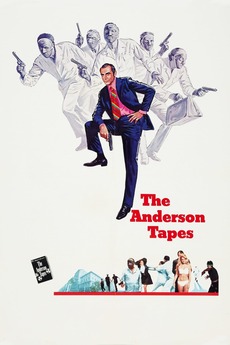The Anderson Tapes
...I always hammer on locked doors.
What's that supposed to mean?
The Anderson Tapes was released in 1971, placing it a decade after the original Ocean's Eleven (perhaps the first film to boldly ask: what if committing a heist was really cool?) and before The Conversation, a film more widely credited as introducing the concept of surveillance to the American filmgoer.
The Conversation only came out three years after The Anderson Tapes, and yet its treatment of surveillance is somehow much more postmodern and cynical; Coppola is interested in the interiority and paranoia of his characters, and it is taken for granted that everyone involved is already aware of their wiretapped lives (in no small part, I suspect, due to Watergate happening between these two films.)
This film, conversely, treats surveillance with a heavy-handed sincerity that could be construed as gimmicky One of the few things that did not age well was the sound effects as we smash cut from one scene to another. if it weren't so prescient. This is a straightforward movie with a straightforward message: we have spent the past decade building the Panopticon, and no amount of Scottish charm or ingenuity will purchase your escape.
Connery is great, of course, and there are bit parts to enjoy outside its use as a time capsule (a young, sinewy Christopher Walken; a Burn After Reading-esque denoument) but the enduring virtue of this film fifty years after its release is its wisdom in understanding exactly how and why the world changed, and to what end.
